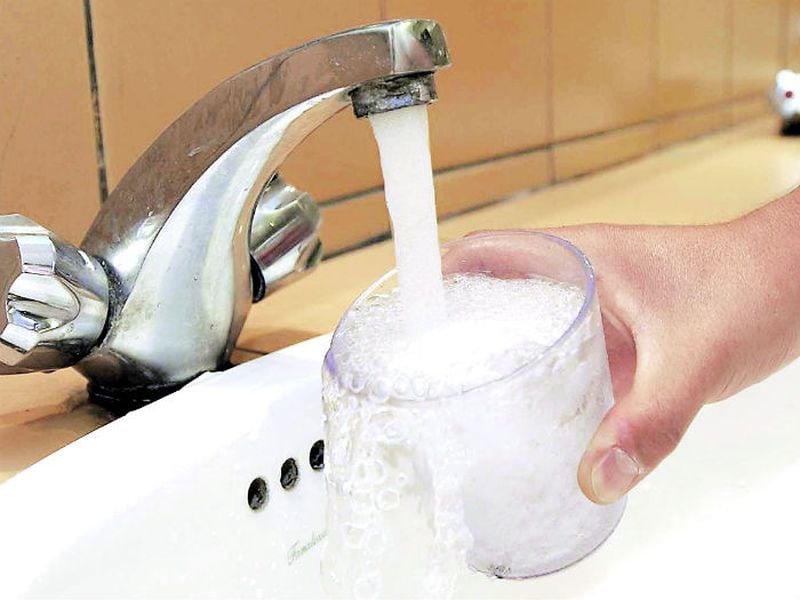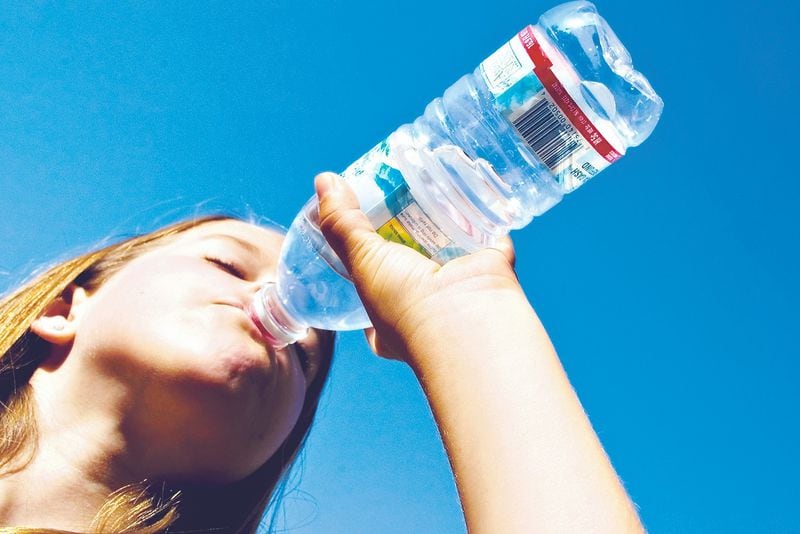Staying hydrated is essential for the proper functioning of the body. But that means taking a good amount, no more, no less. What happens if we overdo it? Three specialists quench our thirst for answers.
“To drown in a glass of water”: this popular saying, of Latin American origin, refers to being very complicated by a small problem, the solution of which is quite simple.
The figure is large, because apart from the fact that it is impossible to drown in such a small quantity of liquid, the fact that someone can die drinking such a noble and elementary liquid for human life as water is also ironic.
But as noble and as elemental as H2O is to drink it in its proper balance, the same that can make this substance both a salvation and a problem, depending on its quantity.
“Maintaining adequate hydration is essential for physiological processes, such as digestion, transport of nutrients and elimination of toxins”, explains María Jesús Zepeda, chief nutritionist at Examinationdi . “In addition, it determines the function of the circulatory system and helps regulate body temperature.”
Instructions for choosing and drinking bottled water
In the words of Zepeda, there is a key concept: adequate. Because just as excessive physical activity ends up being harmful to your health, too much water consumption can end up being harmful.
How much is this amount? What are the risks associated with drinking too much water? Our thirst for answers was quenched by a group of experts.

lifeblood
The first thing to clarify is that there is no magic, universal formula regarding the exact volume of water we should drink. “The intake varies according to each country, dietary habits, lifestyles and environmental conditions,” explains Daniela Henriquez, nutritionist at Medismart.
“Based on Food-Based Dietary Guidelines (GABAS) for the Chilean population, the water recommendation for an adult patient is 6 to 8 glasses a day, which is equivalent to 1.5 or 2 liters of water,” he adds.
For boys and girls, it will depend on several factors. Water, explains the professional, can be offered from solid food, around the age of 9 months. This should be potable water, but if not available, it should be boiled water, with no added sugar or other natural sweeteners or flavourings, such as honey, or artificial ones, such as sweeteners or powdered juices.
“It is recommended to give them between 20 and 50 ml, about 2 or 3 times a day, separating it from the milk”, explains Henríquez. “At one year, that should increase to around 4 cups a day, which equates to around 800ml. For those over the age of one and up to adolescence, the basic water consumption is between 6 and 8 glasses per day”, which can increase according to temperatures and physical activity.
Water balance
Mélanie Vera, general practitioner at Medismart, explains that the idea and importance of drinking water is to “maintain a water balance”.
“In other words, that our water consumption is equal to our losses. In summer, due to the increase in temperature, the loss of fluids through sweating also increases. This is why the feeling of thirst is greater there: as the body uses more water, it demands that we consume more of it,” he explains.
Although in winter we feel less need to consume water, this does not mean that we do not need it.
“When it’s hot, we feel the need to consume water because it helps us regulate our body temperature,” says nutritionist Daniela Henríquez. “However, the fluid needs for the proper functioning of our body continue to be present throughout the year.”
Tips and products for filtering water
“Normally, water makes up 60% of body weight in adult men and 50-55% in women, due to their higher proportion of body fat. The brain and muscles are made up of about 75% of water, blood and kidneys by 81% and the liver by 71%. Even the bones are made up of a fifth”, explained Alfredo Labarca, emergency doctor at HELP, in a previous note.
There he warned that “when a person drinks much more water per day than the established measure, it ceases to have benefits in the body and begins to harm it, and can adversely affect the blood and the heart”.
In these cases, explains the specialist, the most affected organ is usually the brain, “because sudden changes in water content can make neurons unable to adapt”.

potomania
Daniela Henriquez specifies that there are certain pathologies, such as uncompensated diabetes, which can cause “polydipsia or a sharp increase in water consumption, following an increase in urine production”.
“Overhydration can occur as a result of a disorder that decreases the body’s ability to eliminate water or increases the body’s tendency to retain it,” he explains. He says it’s rare, but with severe overhydration, “confusion or seizures may occur.”
“There are certain diseases where one of the classic symptoms is hyperhidrosis, an intense urge to drink water and a constant thirst that nothing calms, as in the case of unbalanced diabetes. These are isolated cases, in which neither 3 nor 4 liters of water a day quench the thirst,” adds María Jesús Zepeda.
She believes, yes, that “it is almost impossible for a person to overhydrate and take risks, because the body’s water balance is wonderful. If you drink more water than the body needs, you simply excrete more in the urine.
Water purifiers: what they are and why it’s worth having one at home
There is also a relatively new and uniquely conceptualized phenomenon: potomania. Which is not what you think. “Potomania is not the cause of excessive water consumption, but its consequence,” he explains. an article from the spanish newspaper The country .
There are people, according to the Iberians Aqua Foundation , who can drink between 8 and 15 liters a day. They do it because they get a good feeling, so this consumption can be classified as an addiction. Those who suffer from it are called potomanes.
When water intake exceeds the excretion capacity of the kidneys, overhydration occurs, leading to dilution of sodium levels in the blood. Mild and common symptoms are headache and nausea, although there are other more serious (although rare) symptoms such as seizures and even death. This addiction to drinking water is rare, but it usually appears in people who step up their consumption to improve their health, lose weight and even have hydrated skin.
“Overhydration can occur in athletes who drink a lot of water to avoid dehydration and exceed the amount, but it can also be due to diseases, among which psychogenic polydipsia stands out, which is a psychiatric disorder”, adds Melanie Vera.
To avoid post-workout water over-ingestion, Labarca recommends “also incorporating isotonic drinks that replenish electrolytes and mineral salts, which are also lost with sweat.”
Nutritionist Mélanie Vera concludes by saying that “it must be taken into account that there are dehydrating liquids, such as tea, coffee, maté or colas, which increase the elimination of water through urine. . The important thing is that during the day the quantity of water ingested allows sufficient replacement of what has been lost”.
Finally, hyperbole has a new meaning. Drowning in a glass of water also means drinking more water than necessary: doing badly trying to do good.
Source: Latercera
I’m Todderic Kirkman, a journalist and author for athletistic. I specialize in covering all news related to sports, ranging from basketball to football and everything in between. With over 10 years of experience in the industry, I have become an invaluable asset to my team. My ambition is to bring the most up-to-date information on sports topics around the world.


